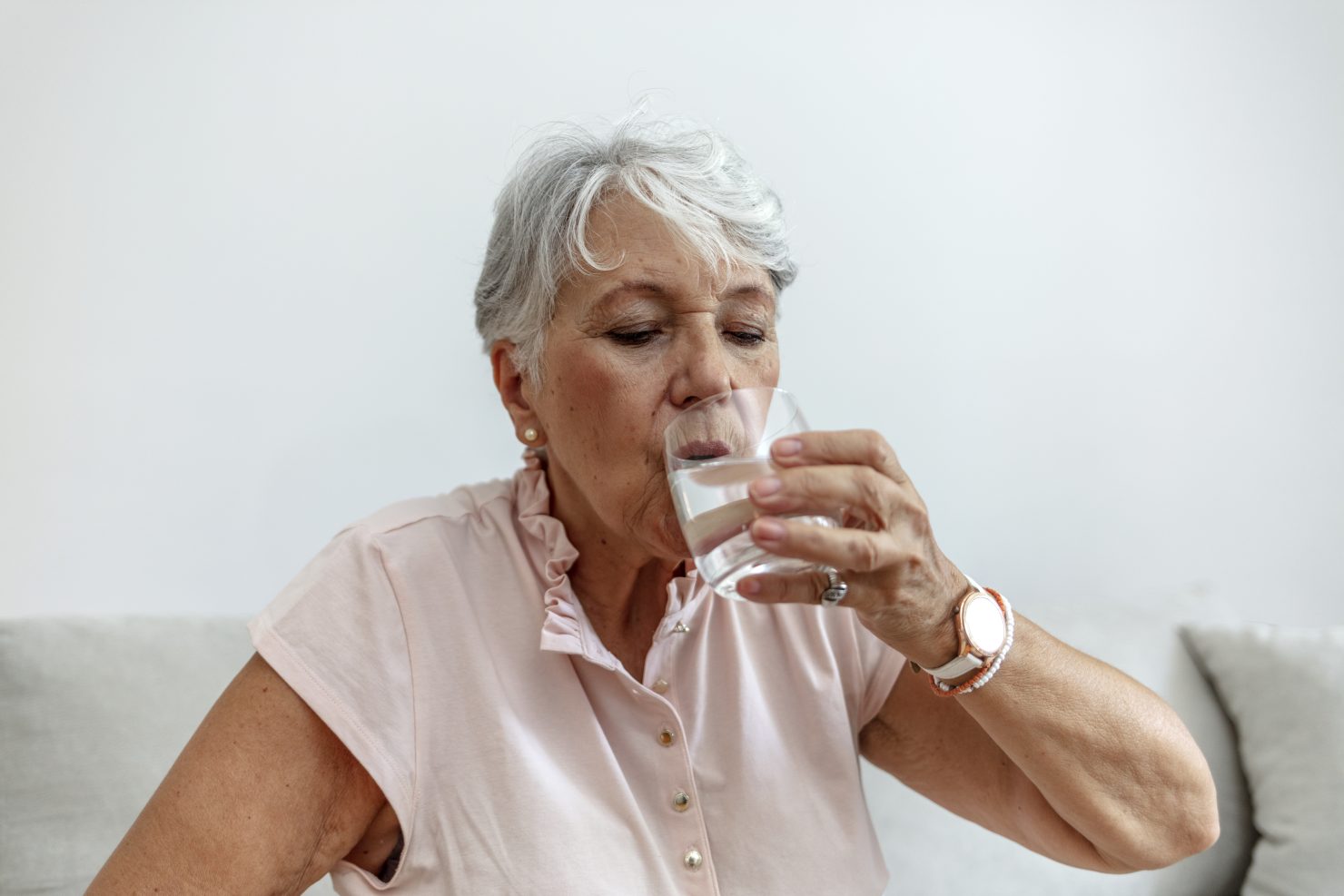Signs of Dehydration in Elderly people
03 Nov, 2021
Physical Wellbeing
It’s important to be aware of the signs and symptoms of dehydration. In elderly people, the effects of being dehydrated can progress quickly, so you must act fast if you suspect dehydration.
As well, symptoms of dehydration in the elderly are often progressive. In the initial stages, you can tell if an elderly person is dehydrated by checking for the following signs of mild dehydration:
- Cracked lips
- Dry mouth
- Dry skin, particularly in the armpits
- Less frequent urination than normal
More severe effects of dehydration in the elderly are:
- Dark-colored urine (instead of what it should be: the color of pale straw)
- Strong-smelling urine
- Dizziness
- Increased heart rate
- Muscle cramps
- Crying without tears
- Confusion
- Irritability
- Fatigue
- Headaches
- Fainting
However, it’s important to keep this in mind: Dehydration symptoms in adults who are in their senior years aren’t always clear-cut. For example, some medications can affect the color of urine. As well, although dehydration can cause hallucinations in the elderly, cognitive changes from dementia or even side effects from certain medications are also sometimes responsible for the experience of perceiving things that aren’t there.
So how can you identify potential dehydration?
Here’s one good strategy: If you experience any of the symptoms above, simply drink some water, then see if the symptoms improve in 10 to 15 minutes. (Or if you suspect that a loved one is dehydrated, make sure that he or she gets some water, then wait and look for improvement.)

You should seek medical attention when you or the elderly person in question is experiencing any confusion, unexplained irritability, or sleepiness.
